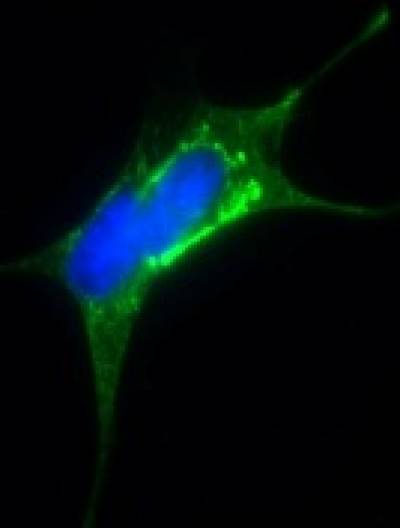Parkinson’s disease
Mendelian forms of Parkinson's Disease
Although historically a firm mendelian basis to parkinson's Disease (PD) was felt to be very rare the last few years has seen dramatic changes. The laboratory at the Institute of Neurology has recently helped identify 2 genes PINK1 and LRRK2 responsible for autosomal recessive and dominant forms of disease, respectively.
We have also been able to show for the first time that a single missense mutation in LRRK2 (G2019S) is found in apparently sporadic cases of disease. This finding has now been confirmed in numerous other studies and is the single most frequent genetic change yet described in PD.
We continue to explore the molecular events that lead to cell dysfunction and death in both PINK1 and LRRK2. To do this we have adopted a variety of approaches including:
Cell culture models; pathological studies from the Queen Square Brain Bank, transgenic animal studies and through collaboration with structural biologists we are attempting to determine the actual structure of PINK1.
Complex trait analysis
Over the last few years in collaboration with Prof David Goldstein (Duke University, NC) we have adopted a haplotype tagging approach to the identification of genetic risk factors underlying PD. Hitherto we have used a candidate gene approach in which genes for study are selected on the biological plausibility for a role in the pathogenesis of PD. Although candidate gene studies have their benefits in terms it is unlikely that one can identify all the risk factors with such an approach. We are therefore building towards a genome wide approach.
These studies in PD are greatly enhanced by our tight working linkages with the Queen Square Brain Bank and the Reta Lila Weston Institute at the Institute of Neurology.
Epilepsy
Mendelian forms of epilepsy
Through collaboration with the Dept of Clinical and Experimental Epilepsy (DCEE). We have been able to identify a number of families with autosomal dominant epilepsy or related syndromes. Linkage mapping strategies have resulted in the identification of 2 novel loci. Work is ongoing in trying to finally identify the causative mutations and identify further genetic loci in the remaining families.
Complex trait analysis
With colleagues in the DCEE (Prof Sanjay Sisodiya) we have a series of well over 100 cases encompassing a variety of epilepsy seizure and syndrome types. We are working together with our long term collaborators at the Center for Population Genomics & Pharmacogenetics (Prof David Goldstein, Duke University, NC). We have performed a large scale candidate gene study involving over 230 intensively selected genes. We are currently analysing the data looking for a role for these genes in risk of epilepsy and response to anti-epileptic medication.
 Close
Close


